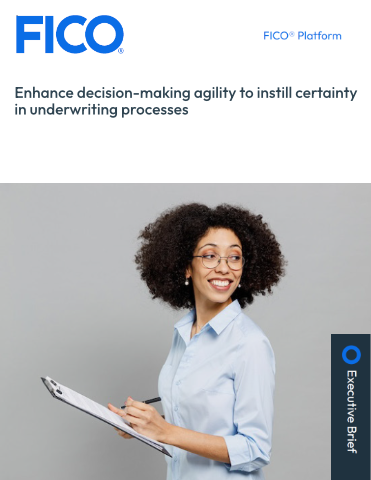The trust paradox putting modern insurance at risk
Insurtech’s proposition has been to rebuild insurance on a foundation of mutual trust, but the lack of data governance could backfire

Insurance has always been regarded as a necessary evil by the public, with its practitioners seen as having a vested interest in minimising payouts, a lack of empathy for client loss, and prone to unfairly inflate premiums to cover insurance agents’ and brokers’ generous commissions.
The raison d’etre of insurtech is to change the negativity that surrounds the sector by wowing clients with transparency and the ease of submitting applications and making claims, thus transforming the public’s concept of what insurance stands for.
And indeed, ease of use is where insurtech start-ups have reached perhaps their biggest achievements. Lemonade UK currently holds the record for paying out a claim of two seconds.
Although other insurtechs, such as Clearcover and Next Insurance, are also available, Lemonade is the posterchild of the emerging sector, with a strong flair for marketing. When Lemonade launched, its mission was to redress the trust issues intrinsic to the legacy insurance model and make the concept and practice of insurance more relatable to customers.
Lemonade’s disruptive model introduced the concept of charity into the insurance equation. By allowing clients to donate any unclaimed premiums at the end of each year rather than just rake them in as profit, the company treats the rest of the money as the client’s, so the two parties should “never fight over the same coin”. Lemonade’s model instead makes its profit from a flat fee charged to clients, who are then free to give what’s left from unclaimed premiums to a charity of their choice. With such a model, conflicting interests are resolved – insurers will pay out, as the funds are no longer earmarked as potential profit, and clients are more likely to refrain from fraud as stealing money from a charitable cause close to their heart falls beyond their red line.
Breaking the chain of distrust
It goes without saying that fraud prevention has been a major concern of the sector since its inception, and insurance fraud is as popular as ever. In 2022, insurance fraud across all lines amounted to $304 billion – not too far behind Apple’s $394.3 billion in total sales.
However, the last major spike in the number of fraud cases was a 159 per cent rise between 2021-22, when more insurers pivoted to online to dampen the negative impact of lockdowns on bottom lines during the pandemic.
Insurance fraud becomes even more conspicuous, and more of a problem, during fallow times. In the decade following the credit crunch, close-to-zero interest rates meant money was readily available. Investment opportunities, rather than cash, came at a premium. As Robert Hartwig, associate professor of finance, told journalist Russ Banham, “reinsurers were sitting on an immense amount of capital with few opportunities to grow their business, when along came the insurtech startups offering a way to get in at the ground level with a potentially disruptive technology.”
Dan Preston, former CEO of Metromile, a provider of pay-as-you-go car insurance acquired by Lemonade in July 2022, has also admitted to “reinsurance being an absolutely critical part of the insurtech growth story”.
But it’s not only money, and the shifting of an unprecedented percentage of their risks to reinsurers, that insurtech gets from these partnerships in return for a commensurate chunk of their premiums, but also improved credentials. The names of well-respected reinsurers such as AXA or Swiss Re will reassure potential clients that the money they trust with start-ups is in safe hands.
Adapting to leaner times
Economic and political volatility, however, has turned this formula on its head. There was a 50 per cent decline in insurtech investments from 2021 to 2022, and venture capitalists now think twice before donating money to fledgling businesses with no prospect of becoming profitable for a decade or more.
In periods of money-pinching, insurers can’t be so cavalier about their losses to fraud even if they are aware of the trade-offs between anti-fraud measures and customer experience. This is where AI and machine learning technology in the back office can come into play.
In the past decade, there have been great advancements in leveraging digital technology to detect fraud, and the occurrence of false positives, a weakness of these systems, has also declined. Natural language processing enables the checking of adjusters’ notes for suspicious phrasing or contradictions, voice biometric technology is deployed to detect anomalies in audio accounts of claim applications, and sentiment analysis is applied to facial expressions and body language in videos.
But the inclusion of intelligent machines in insurance processes is bound to make the web of trust between insurers and the insured even more intricate. Now it’s not only their money and coverage that are causes for anxiety for potential customers, but their personal data too.
Tech firm controversies appear in the news on a weekly basis these days, but a class-action lawsuit was filed against Lemonade all the way back in January 2021, accusing the firm of collecting and using some customers’ biometric data without their consent.
Although Lemonade agreed to pay $4 million to settle the claim, the case highlights the fact that, in a sector trusted and respected for its discretion, the protection of sensitive personal data collected with digital tools is just as important as it was in traditional paper-based offices.
How to align this with a business model tuned for speed of procedure and transparency is a hard nut to crack. Start-ups getting ahead of themselves risk damaging the reputation that they’ve already achieved with their seamless customer experience and the backing they have received from more established reinsurers and venture capitalists.
Data protection legislations such as GDPR have in some cases been seen as an overkill in everyday contexts too trivial for such degree of stringency. But in the light of the rising threats to privacy arriving with the tidal wave of AI, perhaps these complex and often cumbersome legislations are finally being vindicated.

Zita Goldman
Most Viewed
Winston House, 3rd Floor, Units 306-309, 2-4 Dollis Park, London, N3 1HF
23-29 Hendon Lane, London, N3 1RT
020 8349 4363
© 2025, Lyonsdown Limited. Business Reporter® is a registered trademark of Lyonsdown Ltd. VAT registration number: 830519543





